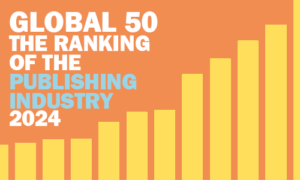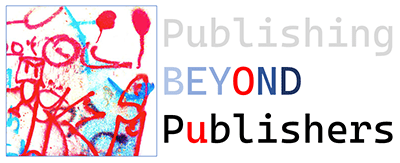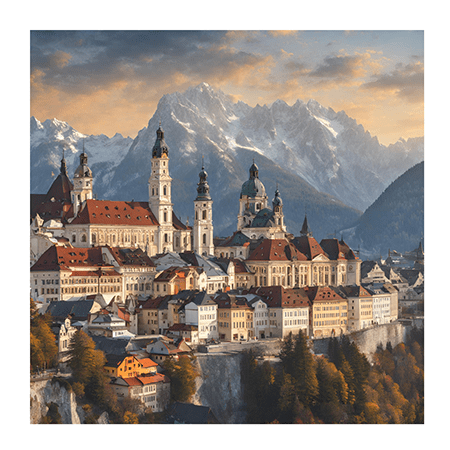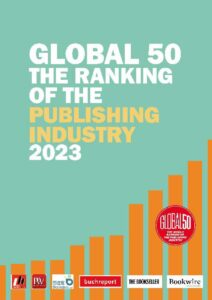The Suhrkamp Crisis
Context and perspectives for the book business.

What is the abrupt change of ownership at Suhrkamp Verlag all about?
How surprising was the upheaval?
What does this mean for the book and publishing business as a whole?
(Deutsche Fassung hier)
It was a shock. Suhrkamp, the publishing house that has shaped the German-language cultural landscape like no other institution for decades, is being taken over by a former DIY store manager. has abruptly withdrawn from the company, after having sold the old family villa shortly before Unseld’s 100th birthday.
1 Suhrkamp and the German book market: an assessment in figures
However, this development is not really surprising, at least if you take a closer look at the background and the environment.
Among the 100 largest publishers in Germany, Austria and Switzerland, Suhrkamp was in 46th place with a turnover of 35.4 million euros – well behind other important cultural publishers such as Rowohlt (25), S. Fischer (27), Ullstein (34) or Carl Hanser (41st place – which also includes the Viennese publisher Zsolnay Verlag).
Among Suhrkamp’s 10 best-selling fiction authors in the decade from 2011 to 2020 are just two names of living German-language writers – namely the Austrian Robert Menasse (in 6th place) and Lutz Seiler from Germany (in 8th place). Other top places go to Elena Ferrante (1), Hermann Hesse (2), Isabel Allende (3), Max Frisch (4) and Bertold Brecht (9). (Analysis rw, based on data from Media Control)
There is no published data on the publishing company’s profits or losses. However, turnover has remained constant for a dozen years with slight fluctuations of around 35 million euros – which, however, corresponds to a loss in value of around a fifth once inflation is taken into account.
Around half of all sales are generated with comparatively expensive hardback editions. Digital editions (i.e. e-books and audio books) and the sale of licensing rights contribute just 15 percent to Suhrkamp’s turnover. (The German trade magazine Buchreport last obtained and published this data from Suhrkamp for the 2022 financial year).
Of course, the question now arises: How else is a publishing house supposed to earn money if not by selling hardcover first editions and inexpensive paperbacks, which contribute around a third of Suhrkamp’s turnover?
Firstly, a look at the German book industry over the past 15 years or so:
Most published industry statistics proudly emphasize how ‘resilient’ – i.e. stable and robust – the book business is. This includes sales figures that are reasonably stable. However, this is only true as long as the effects of inflation are ignored. Between 2019 – the year before the Covid-19 pandemic – and 2023, the book market turnover increased by 1.6 percent. In the same period, however, there was inflation of 16.9 percent, which is not taken into account in this calculation. In real terms, the book market in Germany has therefore shrunk considerably. The number of books sold to customers – i.e. the number of copies – fell by 8.4 percent between 2019 and 2023. (Calculations based on statistics from the German Publishers and Booksellers Association)
The long-term comparison is even more drastic. An analysis of the number of copies sold from 2011 to 2020 shows that this figure has been falling linearly and evenly for more than a decade, especially in the segment of printed book titles that are particularly successful and therefore economically particularly important for publishers. Even the pandemic has left virtually no mark on this long-term trend. (Analysis by the author, based on data from Media Control)
This means that the average paid circulation per title has fallen continuously. In the last 5 years in particular, however, the costs for publishers – especially for paper, printing and infrastructure – have risen significantly. This threatening gap has been compensated for by increases in the retail prices of books. In a generally tense economic climate, however, all consumers are becoming increasingly cost-conscious and are cutting back on certain purchases. Obviously, this also includes books.
This was particularly noticeable in ‘brick-and-mortar’ – i.e. traditional – bookstores, whose sales fell by 14.5% between 2019 and 2023. However, Thalia, which is by far the largest bookstore chain, actually grew even further. This is why this very sustained shift has primarily affected small independent bookstores and smaller local chains.
There are no meaningful figures on the development of Amazon. But there are no signs of a decline in Amazon’s role. This is all the less so as it is clear to see how the digital book business in particular – especially outside of online purchases of printed books – is expanding strongly at Amazon.
This “digital business” is an increasingly diverse mix of self-publishing by authors who use the services of “KDP” (“Kindle Direct Publishing”) and consumers who are also increasingly using subscription services such as Kindle Unlimited or various subscriptions to Amazon’s audiobook arm Audible for certain parts of their book consumption.
In short, the territory of the traditional book business that Suhrkamp has long occupied so confidently and as the ‘top dog’ – as the publisher that can score points through its market position and cultural reputation for the ‘highest quality’ offering in terms of the symbolic value of its authors and their books – is under massive pressure to change.
2 Are there alternatives?
Finding one’s role in this ‘new world’ of books – regardless of the format or format – and shaping it successfully in the long term is a complex challenge.
Well, to take a deliberately extreme counter-example: The publishing house Bastei Lübbe, which is also very familiar with internal business crises, is currently managing this feat quite well.
Bastei Lübbe’s revenues are currently distributed comparatively evenly between printed books and e-books, audio books and other offerings of all kinds of ‘reading fodder’ – because, of course, it is largely not about high literature or complex social analyses.
The publishing house, which was founded as a booklet publisher in 1949 – Suhrkamp was launched just one year later, in 1950 – is now comparatively broadly positioned, ranging from international bestseller stars such as Ken Follett to LYX, a special department for romance novels driven by influencers via Tik Tok – i.e. a modern, digital version of the earlier booklets, which are still available on the side – to a mixed operation such as Community Editions, which is positioned at the interface to computer games and all kinds of digital entertainment.
However, this deliberately extreme contrast between the “Suhrkamp culture” ingeniously staged by Siegfried Unseld in his heyday on the one hand, and the colorful trash mix on the other, illustrates a very serious upheaval that book and publishing companies as a whole have to face today:
Building a stable cultural enterprise solely with books for a narrow target group of educated, urban, German-speaking upper middle class people is a very shaky concept.
However, the reason behind this is not – as is often lamented – that “young people in particular no longer read, but just stare at their cell phones”.
Rather, our societies have become much more diverse and complex since the 1960s and 1970s.
3 How much have society and the target audience for books changed?
Our societies have become much more diverse.
The various population groups with a migration background – including a considerable number of educated people, many of whom were born, raised and socialized here – are virtually absent from the range of books offered by publishers and booksellers.
But the general media culture and its offerings have also become much more fragmented and broader.
The Tik Tok boom among young people is the only exception so far, as the book industry has now realized how well hashtags such as #booktok can be used to communicate and sell printed, beautifully designed books.
However, the multitude of digital platforms is much more colorful than just Tik Tok. The boom in audiobooks makes this clear – and only gradually are we beginning to realize that these new, entirely digitally produced and distributed audiobooks are often distributed in combination packs with other content, by subscription and not primarily by purchasing the individual title.
But of course there is also the deliberately and radically unadapted option as a business model: to resist this, even to oppose it and to deliberately set a clear edge and line and say: I only produce high-quality literature, culture and science. Period!
But this is precisely where it is essential to position oneself in a very modern and contemporary way in terms of conception, production, internal workflows, right through to sales and the perfect approach to very precisely defined target groups, and to do this with all the means that today’s – predominantly digital – means of communication make possible.
One such example is – not entirely coincidentally – the British publishing house Bloomsbury. Yes, exactly, the publisher that brought Harry Potter into the world in 1997 after dozens of other publishers had rejected J.K. Rowling’s first manuscript.
Harry Potter still contributes to Bloomsbury’s continued success and growth – but not alone, and not by magic. Rather, publishing house founder Nigel Newton puts it quite pragmatically, but also confidently:
“This dramatic increase arises from our entrepreneurial diversification strategy, which has forged a portfolio of portfolios combining consumer and academic publishing across formats, territories and subject areas, a resilient model delivering long-term success.” (The Bookseller, 23 May 2024)
Here, too, a clear counter-program to Suhrkamp’s previous strategy is brought to the point. After all, in times of profound change, insisting on a great portfolio alone can only lead to paralysis.
4 What happens next?
There are at least two striking details in the somewhat sparse reports on the upcoming change between the Unseld-Berkéwicz family and the new 100 percent owner Dirk Möhrle:
An “annual net loss of 270,000 euros” is reported for 2022. Well, for a company with an annual turnover of 35.4 million euros, this means a loss of less than one percent.
This alone is not a threat to the company’s existence. But why all the fuss?
Secondly, it is reported that the new owner immediately expressed his confidence in the current managing director of the publishing house, Jonathan Landgrebe. Landgrebe has been a member of the publishing house’s management board since 2008 and has been its sole director since its transformation into a (private, non-listed) stock corporation.
Similar to Unseld, albeit without his self-promotion, Landgrebe clearly regards himself as a ‘businessman‘, as the Frankfurter Allgemeine Zeitung has already attested. (FAZ, 21Jan2015)
If I try to read between the lines here, then there seems to have been a lot of trouble behind the family and board scenes for a while. In fact, this has been publicly confirmed by Landgrebe in an interview at ‘Zeit online’.
When I try to speculate on possible future scenarios against this backdrop – in the knowledge that I could very easily be completely wrong – I can think of several very different variants, although due to a lack of personal knowledge of the person, I am deliberately not speculating on the exact plans or the role that the announced new owner Dirk Möhrle will play in them:
– Takeover by one of the publishing groups present in Germany, i.e. Bertelsmann via Penguin Random House, or Bonnier or Holtzbrinck: Very unlikely, also independent of competition-relevant assessments, because the cultural structure of Suhrkamp and its authors does not fit in there exactly;
– Takeover by a ‘benevolent billionaire‘, similar to the takeover of the second-largest publishing group Editis by the Czech billionaire Daniel Křetínský in France, where a fierce labor dispute, including a strike, has just broken out: Possible, of course, but with few precedents in Germany;
– Takeover by “private equity” in order to develop and then commercially exploit the considerable, very valuable potential of rights and their contemporary exploitation in all directions – following the model of the recent takeover of the traditional New York publishing house Simon and Schuster by KKR Private Equity: a quite plausible variant.
– Simple continuation by the new owner, in the old concept? As good as impossible.
Only one thing is clear: the developments surrounding Suhrkamp remain exciting – and continue to point the way forward for the book and publishing industry in Germany, Austria and Switzerland.
Interested in an international perspective on the current upheavals in the publishing business? The Global 50 Publishing Ranking offers an overview with a ranking of leading publishing groups worldwide, an analysis and company profiles with financial data and details on business development on 220 pages. For only 50 euros. >>









